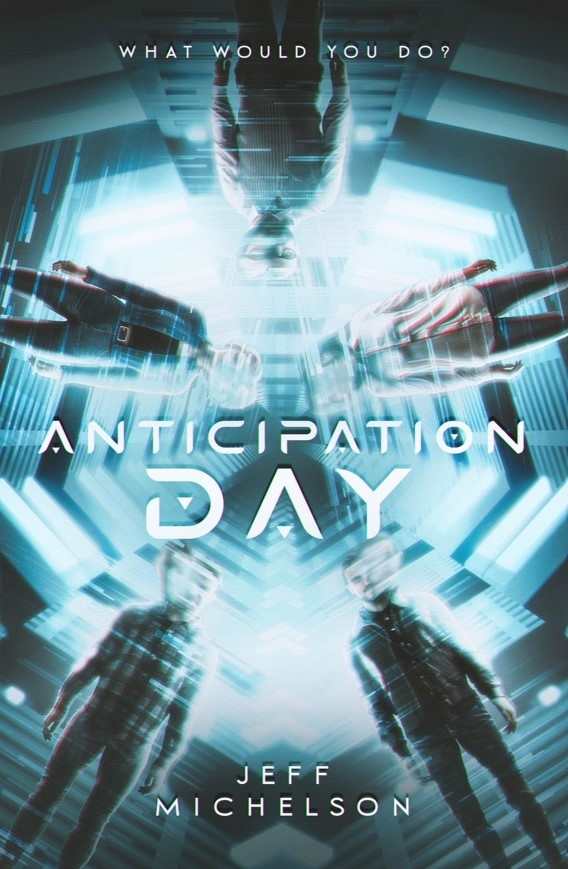Anticipation Day
Simulated escapes are forwarded as a government incentive for people to live healthier lives in the cerebral science fiction novel Anticipation Day.
In Jeff Michelson’s visionary science fiction novel Anticipation Day, innovations in AI and mounting health crises bring about a government initiative to make wishes come true.
In the near future, technology makes computer-generated alternate realities feasible, and AI is used to create realistic simulations of almost any time or place. Unregulated knockoff versions of the technology lead to an uptick of metal illness, though, spurring the creation of an official, government-approved program. Joshua spends four years developing the program, known as “Anticipation Day,” which is designed to give adults the ability to live in any moment, in any era, and have any experience they wish once a year. It’s forwarded as an incentive for people to lead healthier, more productive lives.
Divided into four parts, the novel moves from a lengthy history of the Anticipation Day program to a gathering of old friends before their first Anticipation Day simulations. The simulations themselves and their aftermath are also covered. The central cast includes Eric and Alexandra, a dissatisfied married couple; Clarise and David, who mourn the loss of their youngest son; and Mike, a recovering drug addict and soon-to-be father who once dreamed of being a professional hockey player. Their exchanges are organic, revealing their dreams and sorrows in a meaningful manner.
As the book progresses, people begin to regard the simulation as a cure-all for what ails them: Mourning parents look to their annual simulation as an opportunity to reconnect with their lost children; a childless adult hopes to experience motherhood. Their psychological and emotional experiences are detailed in a powerful manner, though also in verbose passages that overwhelm the book’s action. Further, secondary characters are introduced at excessive length, even including information about their relatives, leading to additional narrative stalls. Joshua’s backstory, for example, includes his history with his wife, their moves between Australia and the United States, and other incidental details with limited relevance to the overarching plot. The book’s central concerns are delayed to establish backstories, and its preeminent characters are absent until almost a quarter of the way into its pages, while those who are introduced in the prologue of the story disappear thereafter. Consistent rhythms are resisted throughout.
A musing science fiction novel about the future of AI, Anticipation Day follows a group of friends as they try to improve their lives through government-sanctioned fantasies.
Reviewed by
Willem Marx
Disclosure: This article is not an endorsement, but a review. The publisher of this book provided free copies of the book and paid a small fee to have their book reviewed by a professional reviewer. Foreword Reviews and Clarion Reviews make no guarantee that the publisher will receive a positive review. Foreword Magazine, Inc. is disclosing this in accordance with the Federal Trade Commission’s 16 CFR, Part 255.

